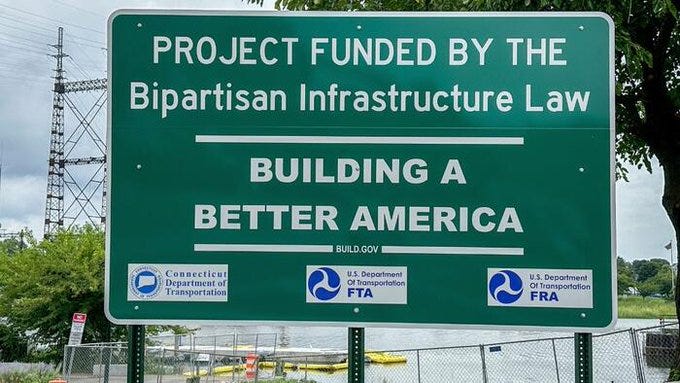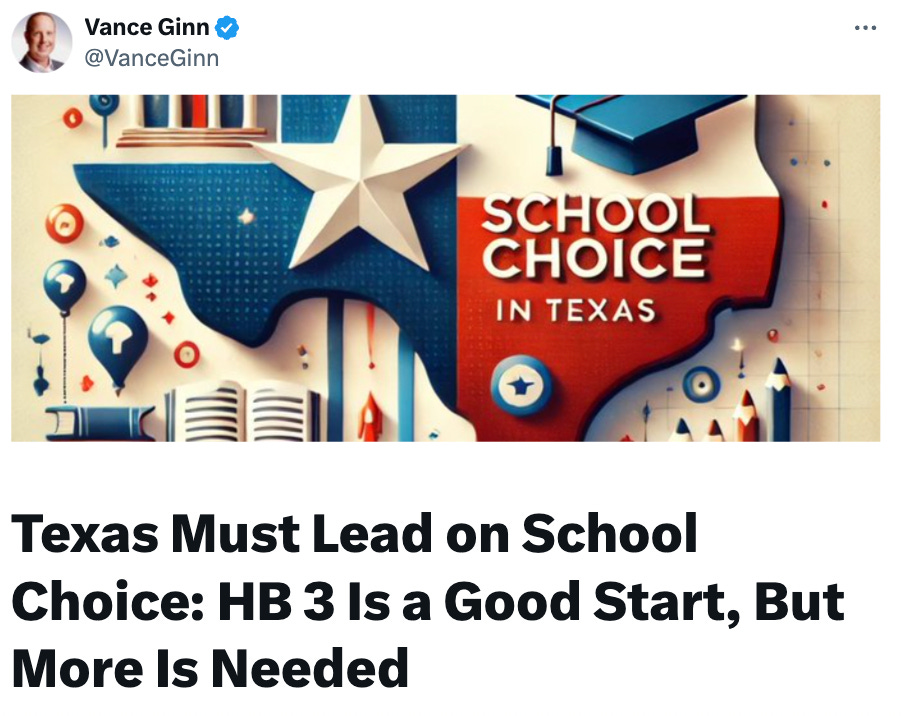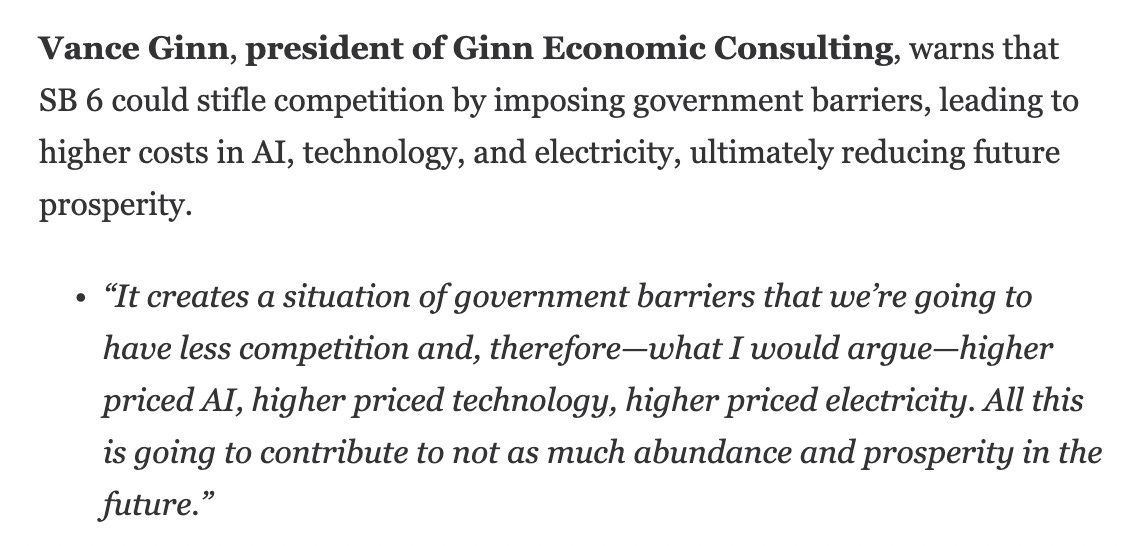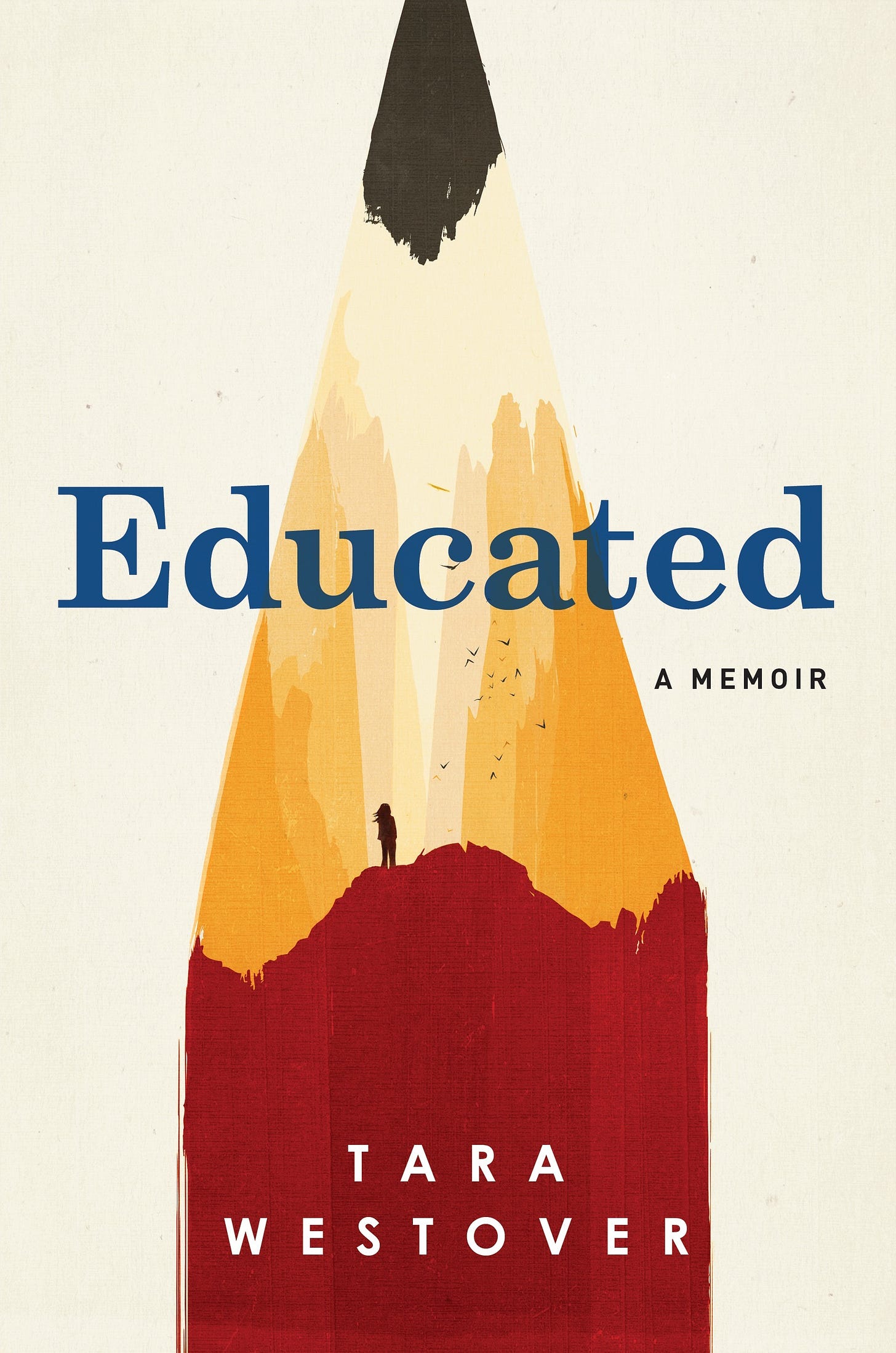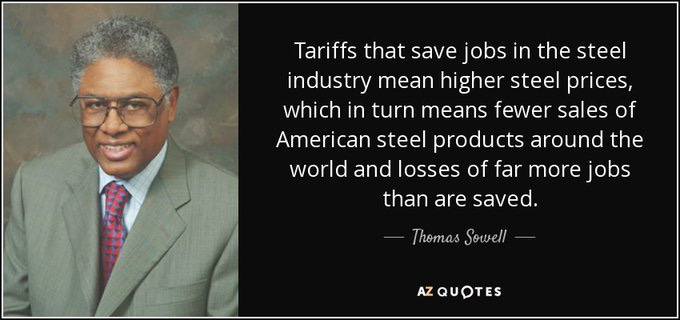Trade War Theater and Important Texas Legislation | Prosperity Pulse #14
State and federal policies that will strain your wallet.
Hello Friends!
The past couple of weeks have been concerning as the tariff drama continues to unfold. We’ve already frustrated our closest trade partners of Canadians and Mexicans by imposing elevated tariffs. I fear this problem will only worsen.
But what is the goal of this trade war? I worry we’ve lost sight of it. Is it to achieve free trade with zero tariffs, balance trade deficits, increase tax revenues for more spending, or to pressure foreign leaders to act, regardless of the economic uncertainty and strained relations with allies?
I’d like to believe the goal is zero tariffs for free trade. That was the objective during the first Trump administration when I worked at OMB. We even included this assumption in our economic forecasts for the President’s budget, aiming to reduce the drag on growth caused by tariffs and the resulting trade war to meet 10-year budget targets. But how realistic is that goal now, given it didn’t materialize in the last round with any country?
At least I can remain optimistic about the states, many of which are creating their own Departments of Government Efficiency (DOGEs), similar to the federal DOGE led by Elon Musk. We’re in an era where cutting government waste is in vogue, and it’s time to capitalize on this momentum to drive real, lasting change that will allow people to thrive.
Now, let’s dive into my overview of the past two weeks. I hope these insights help you better understand the political and economic landscape, and provide clarity on the policies that impact your wallet.
Considering a subscription? Join for exclusive content and help us advance economic freedom and prosperity!
Highlights from This Month
1. Trump Presents Priorities to Congress
“America is back!” boasted President Trump in his address to Congress, outlining a vision of faster economic growth through tax cuts, deregulation, and reduced government spending. As I discussed on X, while these proposals are important, he overlooked two major economic threats: the rising national debt and the cost of tariffs.
There was more to explore on the specifics of his proposals on NTD News, where I especially explained the impact of his tariffs on other nations.
2. Tariff Shake-Up Begins
Speaking of tariffs, Megyn Kelly recently referenced my work on tariffs and trade deficits on her show last week.
We will soon see the impacts on specific sectors of the economy, with agriculture likely caught in the crosshairs. Past federal tariffs and retaliatory tariffs in 2018 and 2019 led to nearly $1 billion in lost trade annually for Kansas farmers, as I shared at the Kansas Policy Institute. This time, tariffs on many goods imported from China are set at an additional 10% above existing rates, while tariffs on goods from Canada and Mexico are going up to at least 25%. These nations have already announced retaliatory tariffs.
Trump’s tariffs are among the most significant tax increases in modern history. Read my thoughts on how tariffs act as a tax and why the trade deficit reflects strong capital inflows and consumer purchasing power at Newsweek.
I enjoyed my conversation with Rich Valdes on tariffs and the most recent jobs report.
3. State DOGEs Appear
States are heavily reliant on federal aid, particularly for Medicaid. In my piece at The Daily Economy, I explain why it’s time for states to be more transparent with their budgets—detailing how much money comes from Washington, where it goes, and which programs will be at risk if federal funding dries up. The growing push for state Departments of Government Efficiency (DOGEs) is a positive step toward greater fiscal responsibility.
For example, Louisiana has long faced budget challenges but is taking a significant step toward addressing them with a DOGE-model program. In my piece at the Pelican Institute, I write that the newly established Fiscal Responsibility Program has the potential to lead in making government more accountable to taxpayers.
RELATED: I’ve outlined key principles for states to pursue sustainable budgeting in this guide for Club for Growth.
4. Delivering Texas Students School Choice
Earlier this week, I submitted testimony on HB 3, a bill aimed at giving parents the autonomy to choose the best educational setting for their children—whether public, private, charter, homeschooling, or other options. While HB 3 is a step forward for educational freedom, it falls short of the comprehensive reform Texans urgently need. I explain more in detail on X.
Passing Texas’s HB 2 and HB 3, billed as a “Texas Two-Step” package for education reform, is a misstep. It prioritizes billions in additional taxpayer money for a broken public education system while significantly limiting school choice and property tax relief efforts, as I explain at Texans for Fiscal Responsibility. HB 3 can be improved by killing HB 2.
5. Other Texas Legislative Cycle Highlights
Property Tax
Texans deserve real property tax relief, not political games. As I argued in my testimony on HB 8, the bill needs stronger measures to prevent local governments from undoing tax cuts, enforce strict spending caps, and dedicate more surplus money to eliminating school property taxes.
Artificial Intelligence
Some Texas lawmakers believe a small business carveout in HB 1709, the Texas Responsible AI Governance Act (TRAIGA), will protect emerging businesses from strict AI regulations. However, as Logan Kolas and I argue in The Center Square, the original TRAIGA imposes burdensome compliance requirements that stifle innovation, especially for small businesses.
Texas lawmakers are considering SB 6, a bill aimed at strengthening the state's power grid by imposing additional rules on large power users, though critics argue it could hinder the state's ability to compete in AI development. The Daily Wire quoted me on the bill:
The bill will likely raise costs on AI and technology, thus hampering innovation and costing future prosperity. My quote in the Crestline Solutions newsletter:
What I’m Learning
CNBC: It’s alarming to see that the U.S. budget deficit surged last month, surpassing $1 trillion—and we’re not even halfway through the fiscal year.
The Daily Economy: The Tea Party’s warnings were ignored, and now the U.S. debt has doubled in a generation. What can we do?
National Review: Great piece by Dominic Pino—he's spot on! “Cheap goods” is really just another way of saying “higher pay.”
Advancing American Freedom: A crucial warning about the harmful consequences tariffs will have on agriculture, directed to Secretary of Agriculture (and my former boss at TPPF) Brooke Rollins.
Abundance Institute: Suggestions for what the White House should incorporate in its AI Action Plan to maintain U.S. dominance in AI by addressing policy and energy infrastructure barriers.
Economic Policy Innovation Center: A new paper reveals how California launders federal funds through a tax on Medicaid insurance plans to cover illegal immigrants.
Otherwise Objectionable: The first episode of the Competitive Enterprise Institute’s podcast series is out. Rachel Barkley shares how social media and the internet supported her and her family during a crucial time.
Upcoming Events
Next week, I will testify at the Kansas State Capitol in Topeka on behalf of Kansas Policy Institute on improving the state’s budget process before the Senate Committee on Government Efficiency (COGE).
I will be in Dallas soon to speak at the Philadelphia Society meetings on classical liberalism in America.
I’ll also be speaking at an event the next week on behalf of Iowans for Tax Relief Foundation on the economic situation and House Iowa is leading in conservative policies.
Books I’m Reading:
I just finished reading Tara Westover’s Educated, and it was an incredible journey through her life. Raised in rural Idaho, she grew up without formal schooling, modern medicine, or many of the things we often take for granted. Despite these challenges, she used those experiences as stepping stones to earn an education at both Harvard and Cambridge. Her storytelling is exceptional, and it has inspired me to write my own story, much like JD Vance’s Hillbilly Elegy did.
Let People Prosper Show Podcast
The Let People Prosper Show features deep discussions on hot topics:
Episode 133 (Thursday):
How can tax reform impact your budget and business? I sit down with Ryan Ellis, a tax policy expert and founder of the Center for a Free Economy, about the complexities of tax reform, tariffs, and why overspending, not under-taxation, is the real issue. Whether you’re a business owner, policymaker, or just desire a clear picture of tax policy, this episode is for you!
Episode 134 (Next Thursday):
Don't miss next week’s episode with Carrie Sheffield, author of Motorhome Prophecies, as we explore her journey of breaking free from generational trauma, challenging beliefs, and embracing personal freedom over fear.Did you miss This Week’s Economy episode 102?
Quote of the Week
Bible Verse of the Week
Thanks for aiding my mission in promoting economic freedom and prosperity. I hope this edition of Prosperity Pulse keeps you informed, inspired, and ready for the week ahead. Please subscribe and share this newsletter with your family and friends.
Keep reading with a 7-day free trial
Subscribe to Let People Prosper to keep reading this post and get 7 days of free access to the full post archives.






